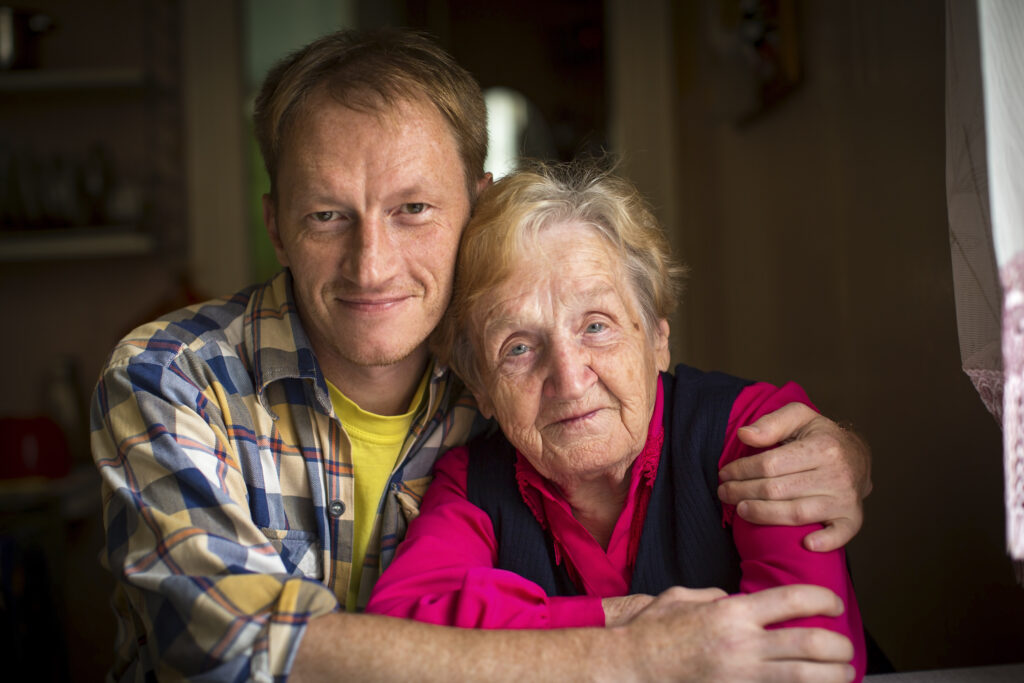
FINDING THE RIGHT ALZHEIMER’S CARE NEAR ME
A checklist to help you find the best Alzheimer's and memory care in your area.
If your loved one has Alzheimer’s, navigating their health care decisions can be overwhelming. Here’s a checklist to get you started, from in-home Alzheimer’s care to specialized memory care facilities near you.
1. Decide whether you’ll search for in-home Alzheimer’s care or an Alzheimer’s care facility.
Before starting your search, sit down with other family members and consider the following questions.
- Safety: Are you concerned that your loved one might wander, fall or put themselves or others at risk?
- Supervision: How much supervision is available for them at home right now? Could they benefit from 24-hour supervision?
- Health: Does your loved one have other health issues that need support? Learn about the different levels of care at senior communities.
- Daily tasks and personal care: Does your loved one need help with daily living activities like bathing, grooming, toileting and getting around?
- Engagement and connection: Do they currently have meaningful ways to socialize and participate in group activities?
Based on your loved one’s safety and other needs, will in-home dementia care, a dementia day care, or a memory care community be the best fit?
2. Make a list of Alzheimer’s patient care options near you.
Next, tap into community resources to see what’s available.
Try checking in with:
- Your loved one’s primary care doctor, geriatrician or geriatrics case manager
- Your local senior center
- Your local Area Agency on Aging
- Alzheimer’s Association’s Community Resource Finder
- Medicare’s online Home Health Compare
- Friends and family
3. Gather key information about your loved one’s health history.
Before making any inquiries, have the following information handy.
- Your loved one’s diagnoses
- Their health and behavioral care needs
- Primary care physician’s name and number
- Insurance coverage and ID numbers
4. Interview potential Alzheimer’s care providers, including about memory care plans.
Ask every memory care agency the following:
- Do they offer the specific services and schedule that your loved one needs?
- Does the staff have special training or experience in Alzheimer’s care?
- If you’re planning on in-home care for your loved one, what’s the agency’s backup plan if the regular home aide is sick or doesn’t show up?
- What’s the agency’s process for creating and reviewing your loved one’s care plan? Does it involve your loved one and you or other family caregivers?
Of course, you’ll have many questions that are personal to you, your loved one and your family.
5. Visit Alzheimer’s nursing homes and adult day centers in person, and meet in-home aides in advance.
If possible, schedule time to tour the memory care center and visit with the staff who would work closely with your loved one.
Then, ask about:
- The staff-to-participant ratio
- A typical calendar of activities
- Safety features like color-coding and locks to prevent wandering
- Which types of services they do and do not offer. For example: Medical? Non-medical? What about additional services like personal care?
Your loved one’s needs will evolve as their dementia progresses. So ask any memory care specialists to tell you how they can support your loved one today, and in the months and years to come.
6. If you’re in California, consider the Pavilion at the Masonic Homes.
When your loved one needs Alzheimer’s care, you can count on the Pavilion at the Masonic Homes. We offer a holistic range of services to help residents live life to the fullest, including three levels of care to meet each resident’s changing needs.
Further Reading:
- For Seniors in Need, a Home at Last
- Personalized Memory Care
- Care for Elderly Patients with Dementia
- Moments of Connection
- Compass Club – Masonic Homes of California
